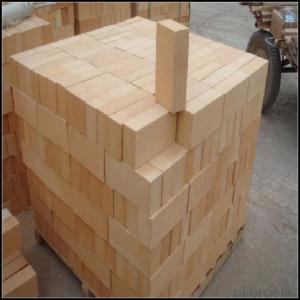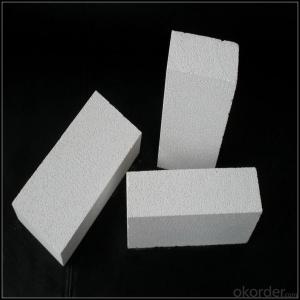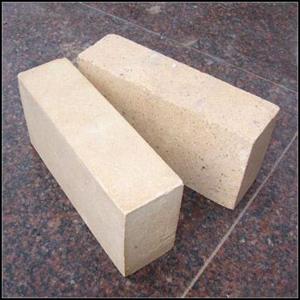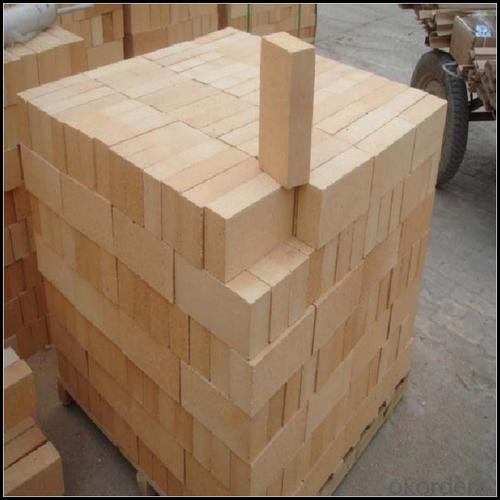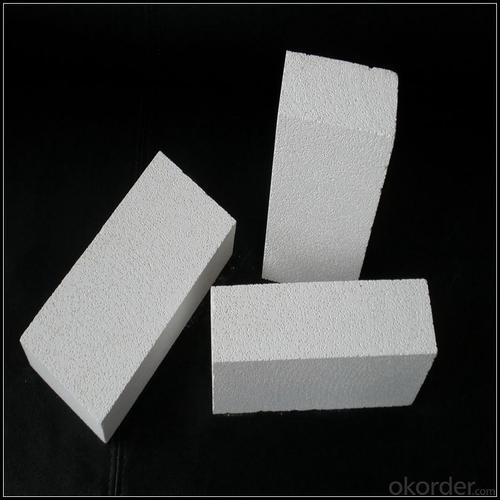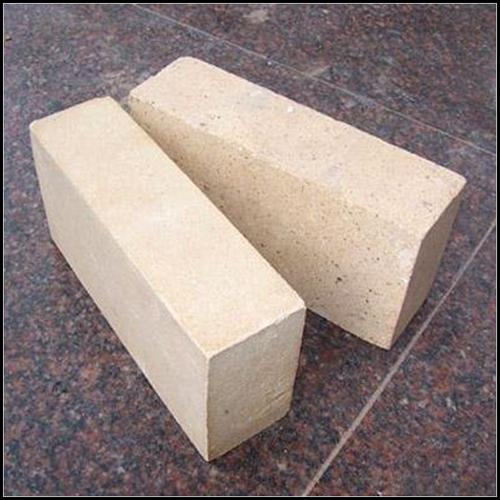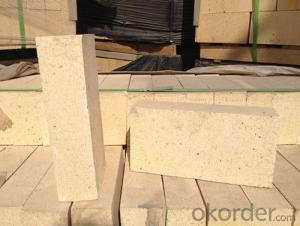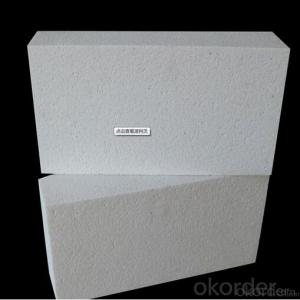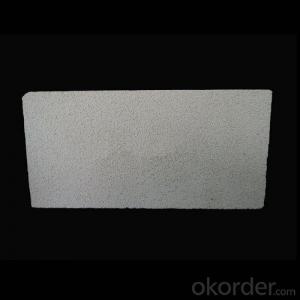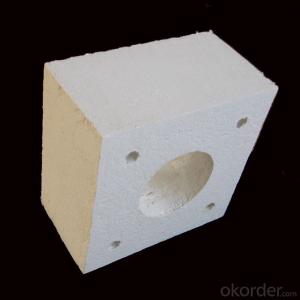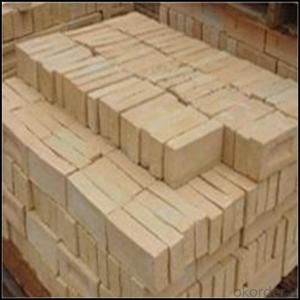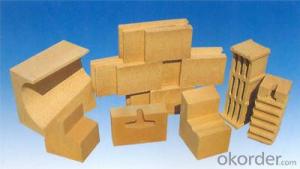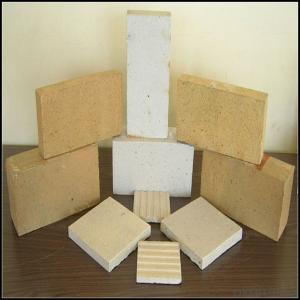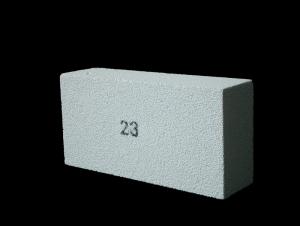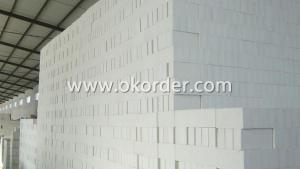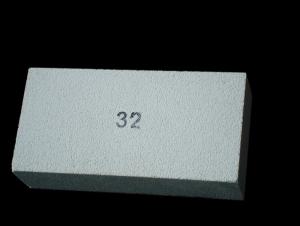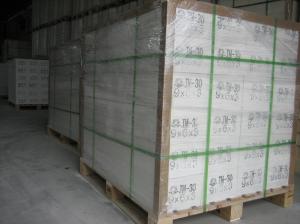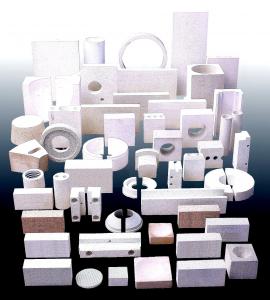High-Alumina Insulating Fire Brick for Furnace Use
- Loading Port:
- China main port
- Payment Terms:
- TT OR LC
- Min Order Qty:
- 2 m.t
- Supply Capability:
- 1000 m.t/month
OKorder Service Pledge
OKorder Financial Service
You Might Also Like
Refractory Brick
CMAX firebricks are classified under temperature between 1300℃ to 1700℃, manufactured from high purity alumina clay by mixing, press-forming, drying, sintering and machining. Bricks contain carefully-graded organic fillers which are burned out during sintering to give a uniform controllable pore structure. This technique makes product feature low thermal conductivity and excellent heat insulation
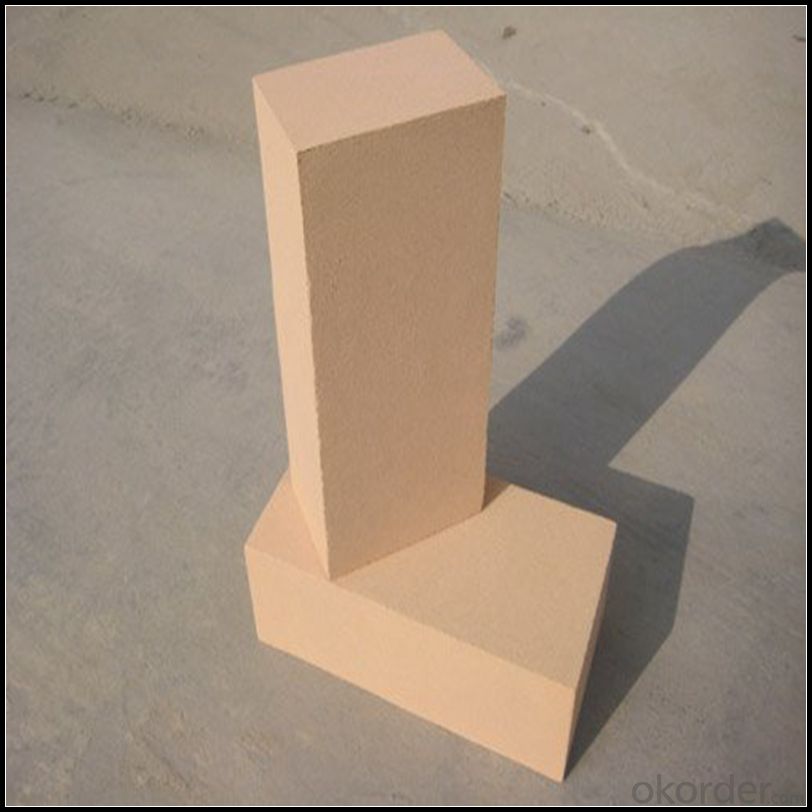
Features
1 Excellent thermal stability2 High refractoriness under load
3 Chemical stability and anti-corrision
4 Small high temperature creep rate
5 Excellent thermal shock resistance
Application
1. Carbon bake furnaces in the aluminum industry
2. Preheat zones and cyclones of rotary cement kilns
3. Insulation for glass tanks
4. Fireplace and pizza ovens
5. Coke ovens
6. Blast furnaces
7. Reheating furnaces
8. Suspended roofs
9. Lime kilns
10. Chimney
Data Sheet
Classification Temperature (℉/℃) | 3000/1650 |
Bulk Density (g/cm3 ) | ≤1.0 |
Thermal Conductivity | |
800℃, W/m.K | ≤0.39 |
1000℃, W/m.K | ≤0.43 |
1200℃, W/m.K | ≤0.48 |
Reheating Linear Change (%) | 1550℃×12h |
≤0.9 | |
Chemical Composition (%) | |
Al2O3 | ≥75 |
Fe2O3 | ≤0.5 |
Packaging & Shipping
Packaging Details:Be packed in fumigated wooden pallets
Delivery Detail: 30 days after order

Our Services
Optimum solution and product supply of refractories for high temperature industries, such as iron steel, non-ferrous, petrochemical and building materials.
Engineering design, contract and consult for refractories, and civil architecture design.
Research, development, manufacture and sale of superhard materials.
R&D, manufacture and sale of special packing materials for export.
Inspection, supervision and arbitration of refractories.
Consultation and services in refractories information.
Training and cultivation of high-level talents in refractories profession
Sales Network

Company Information
CNBM (China National Building Material) Group is the largest comprehensive building materials group in China that in integrate scientific research, manufacturing and logistics into one entity. The largest building materials and equipment specialists in China. Upon State Council approval, today CNBM owned more than 300 subordinate manufacturing factories and servicing companies. There are 6 fully owned public listed companies and 11 partially owned with substantial shares public listed companies. In many of these fields, CNBM is playing the leading role in the building industry in the country.
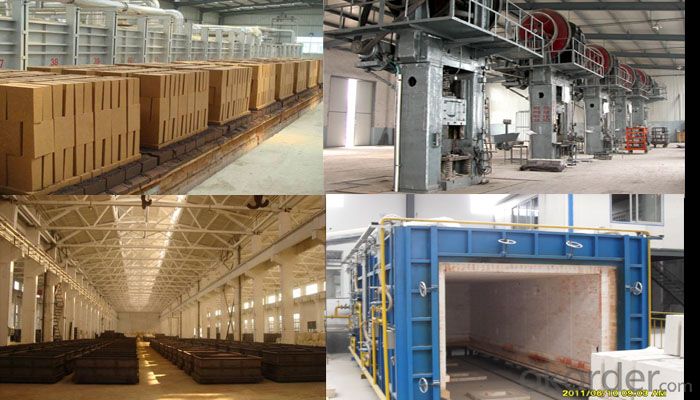
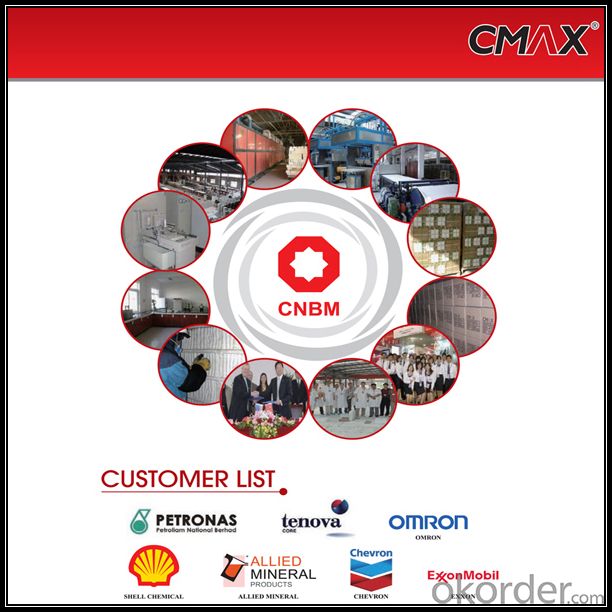
FAQ
1. Which products do you have?
We have all kinds of refractory brick, castable, mortar, cement, ceramic fiber products, etc.
Or you could browse our products to choose what you need.
2. Can you give me a brief introduction of the application of your products?
We are mainly specializing in the refractory materials in iron and steel, cement, glass, ceramics, petrochemical, electric power Industry, etc.
3. If I need your offer, what information do you need?
In order to choose suitable products, it will be appreciated to provide us the information, such us specification, technical data, order quantity, products application etc. If any question, please contact us freely.
- Q: Do insulating fire bricks expand and contract with temperature changes?
- Yes, insulating fire bricks do expand and contract with temperature changes.
- Q: Are insulating fire bricks resistant to acids?
- Yes, insulating fire bricks are generally resistant to acids. They are made from materials that can withstand high temperatures and are chemically stable, making them suitable for applications where acid resistance is required.
- Q: Can insulating fire bricks withstand thermal shock?
- Yes, insulating fire bricks are designed to withstand thermal shock due to their high temperature resistance and low thermal conductivity. They are made to endure rapid changes in temperature without cracking or breaking, making them suitable for various high-temperature applications.
- Q: Can insulating fire bricks be used in the construction of ovens or kilns for pottery?
- Insulating fire bricks are capable of being used in the construction of ovens or kilns for pottery. These bricks are specifically engineered to endure high temperatures and possess exceptional insulation qualities. With their low thermal conductivity, they effectively retain heat and prevent heat loss, making them highly suitable for establishing and maintaining the elevated temperatures necessary for pottery ovens or kilns. Furthermore, these bricks exhibit excellent resistance to thermal shock, enabling them to endure sudden temperature fluctuations without fracturing or shattering. Consequently, they are a dependable option for constructing ovens or kilns that undergo frequent cycles of heating and cooling. Overall, due to their thermal insulation properties and durability, insulating fire bricks are widely favored in the construction of pottery ovens or kilns.
- Q: Can insulating fire bricks be used in the construction of combustion flues?
- Yes, insulating fire bricks can be used in the construction of combustion flues. Insulating fire bricks are designed to withstand high temperatures and are often used to line combustion chambers and flues to provide insulation and prevent heat loss. They have excellent thermal properties, making them suitable for this purpose.
- Q: How do insulating fire bricks affect the overall noise insulation of a building?
- Insulating fire bricks can significantly enhance the noise insulation of a building. These bricks have excellent sound-absorbing properties due to their high density and ability to dampen sound vibrations. By reducing the transmission of airborne and impact noises, insulating fire bricks help create a quieter and more peaceful indoor environment.
- Q: Are insulating fire bricks suitable for use in kilns and furnaces?
- Yes, insulating fire bricks are suitable for use in kilns and furnaces. Insulating fire bricks are designed to provide excellent thermal insulation, making them ideal for applications that require high temperatures, such as in kilns and furnaces. They have low thermal conductivity which helps to minimize heat loss and improve energy efficiency. Additionally, insulating fire bricks are lightweight and durable, allowing for easy installation and long-lasting performance in high-temperature environments. They are resistant to thermal shock and can withstand rapid temperature changes, making them a reliable choice for kilns and furnaces. Overall, insulating fire bricks are an excellent option for providing insulation and maintaining high temperatures in kilns and furnaces.
- Q: How do insulating fire bricks handle moisture?
- Insulating fire bricks are designed to handle moisture in a specific way. These bricks are made of high-grade refractory materials, which have low porosity. This low porosity helps to prevent the absorption of moisture into the bricks. Additionally, insulating fire bricks have a dense structure and are often coated with a protective sealant or glaze, further reducing their susceptibility to moisture. This combination of low porosity and protective coating allows the bricks to resist the harmful effects of moisture, such as cracking, deterioration, or loss of insulating properties. Overall, insulating fire bricks are designed to effectively handle moisture, ensuring their durability and performance in various high-temperature applications.
- Q: Can insulating fire bricks be used in ceramic fiber modules?
- No, insulating fire bricks cannot be used in ceramic fiber modules. Ceramic fiber modules are typically made from refractory ceramic fibers, which are lightweight and have excellent insulating properties. Insulating fire bricks, on the other hand, are dense bricks made from refractory materials like clay or silica, and they are not flexible or adaptable like ceramic fiber modules.
- Q: How do insulating fire bricks affect the overall energy savings of a structure?
- Insulating fire bricks play a crucial role in enhancing the overall energy savings of a structure. These specialized bricks are designed to have low thermal conductivity, which means they are highly effective in preventing heat transfer. By using insulating fire bricks in the construction of a building, the heat loss through the walls, floors, and ceilings is significantly reduced. One of the primary ways these bricks affect energy savings is by improving the insulation of the structure. Insulating fire bricks have a high resistance to heat flow, which helps to maintain a consistent indoor temperature. This reduces the need for artificial heating or cooling, as the bricks help to keep the interior warmer during colder months and cooler during hotter months. As a result, the reliance on HVAC systems is reduced, leading to substantial energy savings. Moreover, insulating fire bricks also contribute to energy savings by minimizing thermal bridging. Thermal bridging occurs when materials with high thermal conductivity, such as metal or concrete, create pathways for heat to escape or enter the building. By using insulating fire bricks, which have low thermal conductivity, these pathways are disrupted, and heat transfer is significantly reduced. This ensures that the building's insulation remains intact and energy loss is minimized. Additionally, insulating fire bricks can improve the overall efficiency of heating appliances. By lining the interior of fireplaces, furnaces, or kilns with these bricks, the heat generated is efficiently contained, allowing for better heat distribution and reduced waste. This means that less energy is required to achieve the desired heating levels, resulting in increased energy savings. Overall, insulating fire bricks have a substantial impact on the overall energy savings of a structure. They enhance insulation, reduce thermal bridging, and improve the efficiency of heating appliances. By minimizing heat loss and optimizing heating and cooling systems, these bricks significantly reduce energy consumption, leading to long-term cost savings and a more sustainable building.
Send your message to us
High-Alumina Insulating Fire Brick for Furnace Use
- Loading Port:
- China main port
- Payment Terms:
- TT OR LC
- Min Order Qty:
- 2 m.t
- Supply Capability:
- 1000 m.t/month
OKorder Service Pledge
OKorder Financial Service
Similar products
Hot products
Hot Searches
Related keywords
